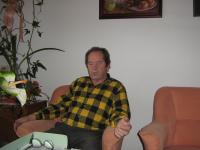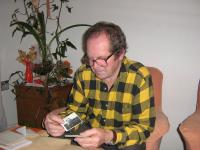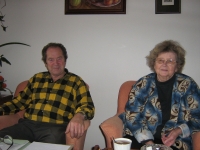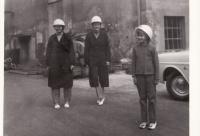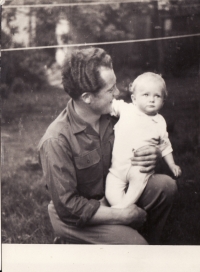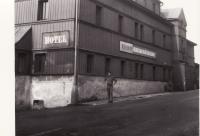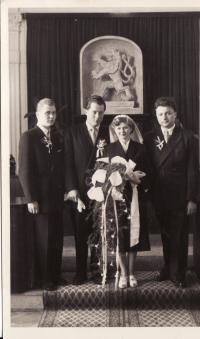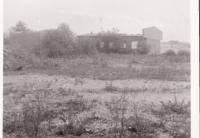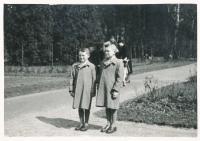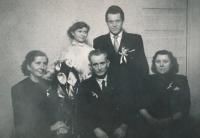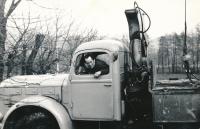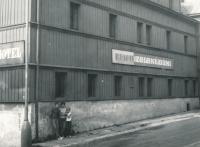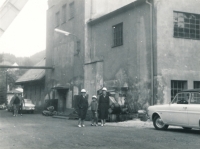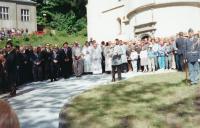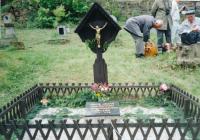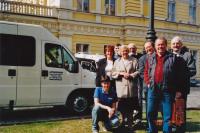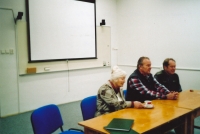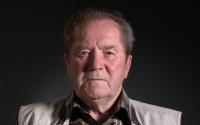I thought I did a good deed

Download image
Miroslav Hampl was born on September 16th, 1932 in Křelov near Olomouc. He always wanted to travel, so in 1947, he went to study shoe-making at Baťa’s school, as it gave a prospect of working abroad there. The communist coup in 1948 thwarted all his plans for traveling, however After finishing his studies, he was chosen for an one-year brigade in heavy industry. From the offers he received on locations to work, Miroslav decided to work in a mine in Jáchymov, where he worked as a collector. While there, he met political prisoners and attempted to help them by all means possible. He managaged to help the prisoner, Bohuslav Pánek, to escape. Finally, on November 27th, 1952, Miroslav Hampl was arrested. On September 22nd, 1953, he was sentenced to three years of prison for an association against the Republic. The original charge was for treason and espionage, but the sentence reflected his workers‘ origin. He was sent to Ležnice camp in Horní Slavkov. His friends in prison, whom he helped as a civil servant, helped him survive the unbearable working conditions. Thanks to their solidarity he began to fulfill the standards and his food rations increased. On September 28th, 1954, Miroslav Hampl was put on probation as a result of amnesty. But as a political prisoner, he had serious trouble finding a job. In the end, he went to work for a district construction company where he stayed until his retirement. In 1987, his daughter Vladimíra, her child, and her boyfriend emigrated to West Germany. Currently, Miroslav Hampl lives in Šumperk.
